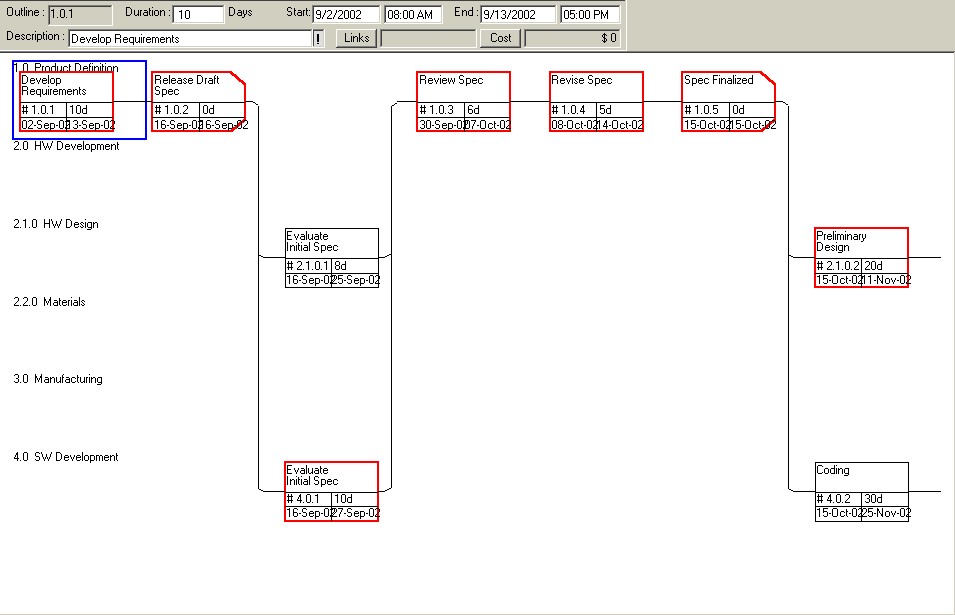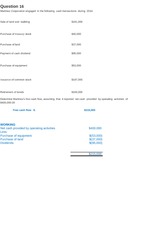Financial Accounting vs Managerial Accounting: A Comparison

Despite their seemingly similar nature, there are a lot of distinctions between these two practices; quite a few important ones, too. In this article, we’ll simply explain all of them—read on to find out everything about financial and managerial accounting. If you prefer a multifaceted role in a fast-paced environment (e.g., working in a startup finance team) managerial accounting is a suitable path. And if you’re looking for a more integrated, analytical role (e.g., at one of the Big Four firms), financial accounting is the right choice.
The latest trends, skills, and tips you need to know to fast-track your accounting career. There are some other specific areas of specialty as well, including government and non-profit accounting, forensic accounting, and tax accounting. Financial accounting addresses the proper valuation of assets and liabilities, and so is involved Financial vs managerial accounting with impairments, revaluations, and so forth. Managerial accounting is not concerned with the value of these items, only their productivity. Depending on your answers to those questions, you may want to consider financial accounting. In most companies, they are used simultaneously to create a more efficient, profitable business.
ONLINE MASTER OF BUSINESS ANALYTICS
Financial accountants must prepare financial statements at the end of their companies’ fiscal year, though most organizations do so monthly to keep track of their ongoing business performance. The results they compile are for the business as a whole, not individual departments or product lines. Financial accountants produce documents such as income statements and balance sheets, which external parties (investors, industry regulators) use. The statements document an organization’s financial performance over a period of time, as well as its overall financial health.
These standards are developed by the Financial Accounting Standards Board (FASB) and are designed to ensure that financial statements provide accurate and consistent information about a company’s financial performance. Managerial accounting is not governed by GAAP standards, but must still be compliant when using any financial information taken from financial statements in managerial reports. Managerial accountants help organizations optimize their financial performance by providing guidance on budgeting and investment strategies. They use their analytical skills to assess internal operations, project a company’s future financial performance, and prepare and present these findings to C-suite executives. A financial accountant’s core duties revolve around preparing and reporting financial statements and ensuring they’re in compliance with applicable laws and industry standards, such as GAAP.
Does Managerial Accounting Follow GAAP?
This is the phase of accounting concerned with providing information to managers for use in planning and controlling operations and in decision making. Both managerial accounting and financial accounting are centered around numbers, but how those numbers are used varies greatly in these two types of accounting methods. Like the example above, managerial accounting focuses on problem-solving, devising strategies for making the company more profitable and efficient long term. Since Frank’s customer brings in a lot of revenue, you need to devise a plan that will help to offset that loss. However, when you review your financial statements for the past six months, you see that revenue is down across the board. The following day, you and your staff create a plan for bringing in more revenue, starting with expanding sales territories.
They provide financial governance through data collection and analysis, transaction reconciliation and record auditing. Financial accountants may also offer guidance on project funding and budget preparation. Professionals in both financial and managerial accounting roles sift through and organize financial data, but for very different audiences and purposes. Individuals looking to break into the accounting field should understand the similarities and differences between these professions to ensure they’re on a career path that aligns with their talents, goals and interests.

Financial accounting focuses on providing an overview of a company’s financial health and managerial accounting provides more detailed insights into how a company is run on a day-to-day basis. Both financial accounting and managerial accounting play vital roles in providing essential financial information within organizations. Financial accounting offers standardized financial reporting for external stakeholders, focusing on summarizing and presenting financial transactions.
What does a managerial accountant do?
If you’re exploring accounting as a career option, understanding the difference between these two types of accounting is important. This article will help you differentiate between managerial and financial accounting so you can have a better idea of which direction you may want to take in your career. While you’re likely using accounting software in order to track your financial accounting activity accurately, you’ll probably need to use other resources such as budgeting or planning tools in managerial accounting. Financial accounting is the process of recording, classifying, and reporting financial transactions to ensure that the financial statements of an organization are accurate. A bachelor’s program can provide professionals with fundamental accounting knowledge and bookkeeping skills that are necessary in either career. Managerial accounting reports are shared internally only and are, therefore, not subject to such rules and regulations and are not required by laws to follow any accounting standard.
A financial accountant should have excellent analytical skills as their primary duty is to analyze data. They should also have excellent negotiation and communication skills as they will always work closely with other departments. Last, but certainly not least, a financial accountant should also be detail-oriented and able to meet deadlines.
Financial Accounting vs. Managerial Accounting: What’s the Difference?
In contrast, financial accounting is concerned with providing information to stockholders, creditors, and others who are outside an organization. Managerial accounting provides the essential data with which organizations are actually run. Financial accounting provides the scorecard by which a company’s past performance is judged.
New Online Recruitment Services Market [2023- 2029]: Exploring … – Digital Journal
New Online Recruitment Services Market [2023- 2029]: Exploring ….
Posted: Mon, 21 Aug 2023 05:50:30 GMT [source]
There is also a difference in the accounting certifications typically found in each of these areas. People with the Certified Public Accountant designation have been trained in financial accounting, while those with the Certified Management Accountant designation have been trained in managerial accounting. Financial accounting is concerned with the financial results that a business has already achieved, so it has a historical orientation. Managerial accounting may address budgets and forecasts, and so can have a future orientation.
Securities and Exchange Commission, GAAP are the accounting standards, conventions and rules companies use to measure their financial results including net income and how companies record assets and liabilities. Unlike financial accounting, managerial accounting does not operate within a strict regulatory framework. This flexibility allows organizations to tailor their managerial accounting practices to suit their unique needs and circumstances. As such, managerial accounting reports can delve into historical data, as well as provide future-oriented forecasts and projections. Managerial accounting focuses on evaluating the internal needs of businesses and solving problems that impact revenue streams, financial health and long-term profitability.
While these specializations do have some overlap, each role focuses principally on its own responsibilities, accounting processes and legal requirements. Both financial accountants and managerial accountants typically have at least a bachelor’s degree in an accounting-related discipline. A strong understanding of accounting is a requirement, as well as a solid foundation in management theory principles. Individuals seeking leadership roles in the field should consider pursuing an advanced degree in accounting. Professionals pursuing accounting careers should understand the overlaps between financial accounting and managerial accounting. Accountants help their organizations understand financial data through techniques such as ratio analysis, vertical analysis and horizontal analysis.

Management accounting is a field of accounting that analyzes and provides cost information to the internal management for the purposes of planning, controlling and decision making. While managerial accounting works more as a problem solver, financial accounting shows you exactly what your business has accomplished to date. If you’ve ever sat in on a budget meeting, you know that the numbers in a budget can be quite arbitrary. And while financial statements are frequently used as a starting point for creating a budget, budget estimates are usually created based on the needs and expectations of the manager(s) that are creating that budget. Financial accounting analyzes company results that have already been achieved, with those results contained in financial statements. Another important set of standards to note is the International Financial Reporting Standards (or IFRS), which provide global standards of how reports should be prepared.
You may also need to monitor bank statements, investments, and more, requiring similar steps to preparing financial statements for a business. Financial accounting must follow certain standards in accordance with GAAP, which is a requirement for businesses based in the U.S. to maintain their publicly traded statuses. Managerial accounting is not intended for external users and can be modified according to the company’s processes.
- Managerial accounting is only concerned with the value these items have on a company’s productivity.
- This post explains the difference between financial accounting and management accounting in detail.
- Meanwhile, the data for external users require accountants to follow specific standards and rules.
- The results they compile are for the business as a whole, not individual departments or product lines.
- Over the years, new rules have been established and old rules have been modified to fulfill needs within specific industries.
The following are areas in which financial and managerial accounting differ and what sets them apart. Accounting software also works efficiently in both accounting concepts to the benefit of a small, medium or large business out there. Therefore, managerial accountants must be knowledgeable concerning financial accounting and reporting. The primary purpose of managerial accounting is to support internal operations and strategic decisions. It offers insights into specific segments, departments, products, or projects, enabling managers to make informed choices about resource allocation, cost control, and performance evaluation. Managerial accounting information is more flexible and can be reported daily, weekly, monthly, or on an as-needed basis, depending on the managerial requirements.
Conversely, managerial accounting looks for bottleneck operations and examines various ways to enhance profits by eliminating bottleneck issues. Their deep understanding of the company’s transactions allows them to specialize in financial reporting or managerial reporting. Managerial accounting reports are highly detailed, technical, specific, and even exploratory in nature. Companies are always looking for a competitive advantage, so they may examine a multitude of details that could seem pedantic or confusing to outside parties. This uniformity allows investors, lenders, and analysts to compare companies directly on the basis of their financial statements.
